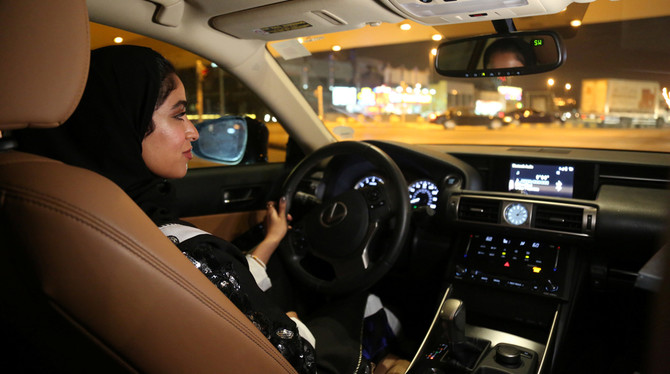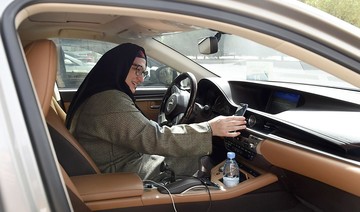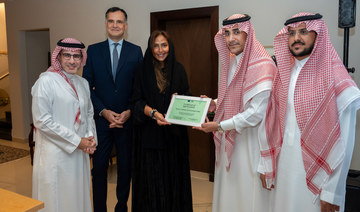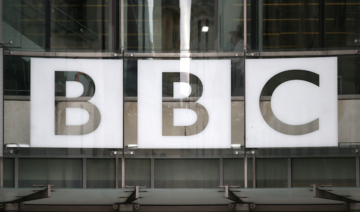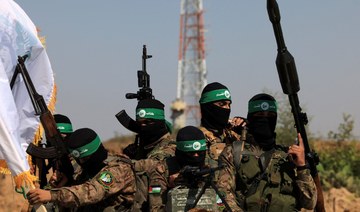LONDON: The sight of Saudi women taking to the roads as the clock struck midnight on June 24 caught the imagination of much of the world’s media.
The official lifting of the ban on female drivers generated a multitude of headlines around the globe as reporters filmed women jumping into cars and driving around the streets of Riyadh, Jeddah and Dammam. The news kept media commentators busily assessing the impact of the decision on Saudi Arabia and wider Arab world.
“‘I feel free like a bird’ — Saudi women celebrate as driving ban lifted,” read a headline in The Guardian newspaper, which is based in London.
“‘Everything is an adventure now’: Saudi women celebrate new driving freedoms as ban is lifted,” a headline in the UK’s Independent proclaimed.
Time magazine featured interviews with Saudi Arabia’s first female taxi drivers employed by the regional ride-sharing firm Careem.
The New York Times’ coverage included short interviews with Saudi women on their opinions about the lifting of the ban, as well as what other reforms they would like to see in terms of women’s rights.
While stories of Saudi women driving for the first time filled Twitter feeds and websites alike, there was also much interest about the wider implications on society.
The Economist timed its “Special Report on Saudi Arabia” to coincide with the the lifting of the ban.
“We have long been interested in the reforms of Saudi Arabia. The Economist was the first international publication to interview (Crown Prince) Mohammed bin Salman on the record, and we broke the story of the planned IPO of Saudi Aramco in 2016,” Anton LaGuardia, author of the report and deputy foreign editor of The Economist, told Arab News.
“We have regularly covered developments in Saudi Arabia and the region. As the reforms gathered pace, we decided last year that we would have a wide-ranging special report on Saudi Arabia and the Gulf in 2018.”
The publication also produced a short video of The Economist Editor-in-Chief Zanny Minton Beddoes driving in Riyadh on Sunday.
“Women drivers is only one part of a broader process of social and economic liberalization, and of political change in the region, that will affect many aspects of life in Saudi Arabia, the Gulf and the Arab and Islamic worlds,” LaGuardia said.
Bloomberg also published extensive coverage of the lifting of the ban, including an assessment of the economic impact of the decision. According to the agency’s economists, the lifting of the ban could add $90 billion to the country’s economic output by 2030.
“(Some might think that) Bloomberg, being a business-focused news organization, might not bother with this kind of story, but it is exactly the kind of story we would bother with. It is very much central to what we do — it cuts across everything,” said Riad Hamade, the news service’s Middle East and Africa executive editor.
“Women’s right to drive is not a self-contained issue. It impacts every part of Saudi society and it will have significant repercussions on how Saudis in general live their lives.”
“There is a great hunger to know what is changing — what is happening in Saudi Arabia and this is a pretty major change.
“The issue of women driving is an issue that I think every journalist and international investor that went into the Kingdom would ask authorities about. It is one of the things that a lot of people are wondering about and the fact that it has now changed has quite significant ramifications.”
While the majority of the world’s press perceived the lifting of the ban as a positive development for Saudi women, some publications did question whether there may continue to be some resistance to the ban from more conservative elements of society.
“Still, many in this nation of 33 million were grappling with anxiety over this new freedom, both within families who never bought into the stereotype that women should be shut up at home, and those who sincerely believed what they had been taught since childhood,” read a New York Times article published June 24.
Other articles also pointed to bureaucratic delays in some women getting their driving licenses in time for the lifting of the ban, while others pointed out that the end of the ban would not immediately benefit poorer elements of society, where families are still unable to buy a car.






